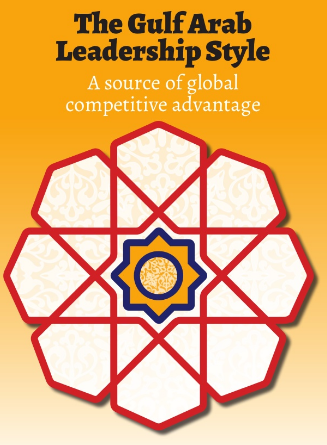 Five ways global leaders can learn from Arab leadership styles, according to LBS expert
Five ways global leaders can learn from Arab leadership styles, according to LBS expert
In the Middle East, it’s important to invest time in building business relationships. This is according to Randall S Peterson, Professor of Organisational Behaviour and Academic Director of the Leadership Institute at London Business School. Although business customs can vary slightly from country to country in the region, leaders are expected to be and tend to be accessible, with a widely-adopted open-door approach in the Arab business world, Professor Peterson’s research has found.
For example, in the UAE, 80% of the population are expatriates with large groups of Europeans, Asian Muslims, as well as people from around the Arab region. “The nature of the diverse and multicultural society means that many international business leaders can run their organisations without fully understanding local customs and values, but it doesn’t mean they shouldn’t try.
“Arab Middle Eastern culture is rooted in trust. People are generally guided by tenets of the Quran: they respect their culture, uphold their traditions and value relationships.”
Based on his on-going research and in-depth interviews with business leaders in the Middle East, Professor Peterson identifies five key ways that business leaders across the globe can learn from Arab leadership styles:
1. Leaders shaped by culture
Research shows that the Middle East is high in “power distance”, where power between leaders and their team members is often distributed unequally, meaning once a leader has taken a decision the members are expected to implement faithfully.
Leaders in high-power distance cultures have more power than their low-power distance counterparts, where team members expect to help set the agenda and have direct influence on the final decision – which can make it difficult for leaders to co-ordinate views.
2. Build trust on a foundation of excellence
Trust is a universal imperative for good working relationships no matter where you work, and not unique to teams in the Middle East. However, honour is also important. One business leader interviewed as part of Professor Peterson’s research said that Islam promoted “sincerity and excellence”, which encouraged his team to produce high-quality work.
3. Everyone has a purpose and a role
Another interviewee likened a team to a body. “If one part aches because of an ailment, the rest of the body feels the pain. If it weakens from one side, it is strengthened by the other.” This metaphor rings true throughout team dynamics in the Middle East. Trust and clear goals encourage team members to challenge and advise their superiors at appropriate times. One common misunderstanding about the region is that workers must “blindly” follow leaders. By tradition, followers are expected to comply with leader decisions, but leaders are expected to genuinely consult with their teams before decisions are taken.
4. Open-door culture
Arab leaders can generally be called on at any time and they often establish open and personal relationships with employees by introducing open-door policies. But that doesn’t mean holding a team up to the light and expecting to see straight through them: conflict is inevitable. It’s human nature to disagree. If employees suppress their true opinions it “kills the work” declared one leader.
5. Balance consulting with decision-making
It’s a religious and moral obligation for leaders in the Middle East to consult their people before exercising power. Choices are made irrespective of personal opinions; they are made for the good of the organisation. It seems managers in the Middle East make choices based on excellence and common good, so after taking on subordinates’ perspectives, their decision stands.
“But of course, when you throw different cultures into the mix, the advice for leaders and their teams is different again,” says Professor Peterson. “That’s the cultural diversity challenge.”


